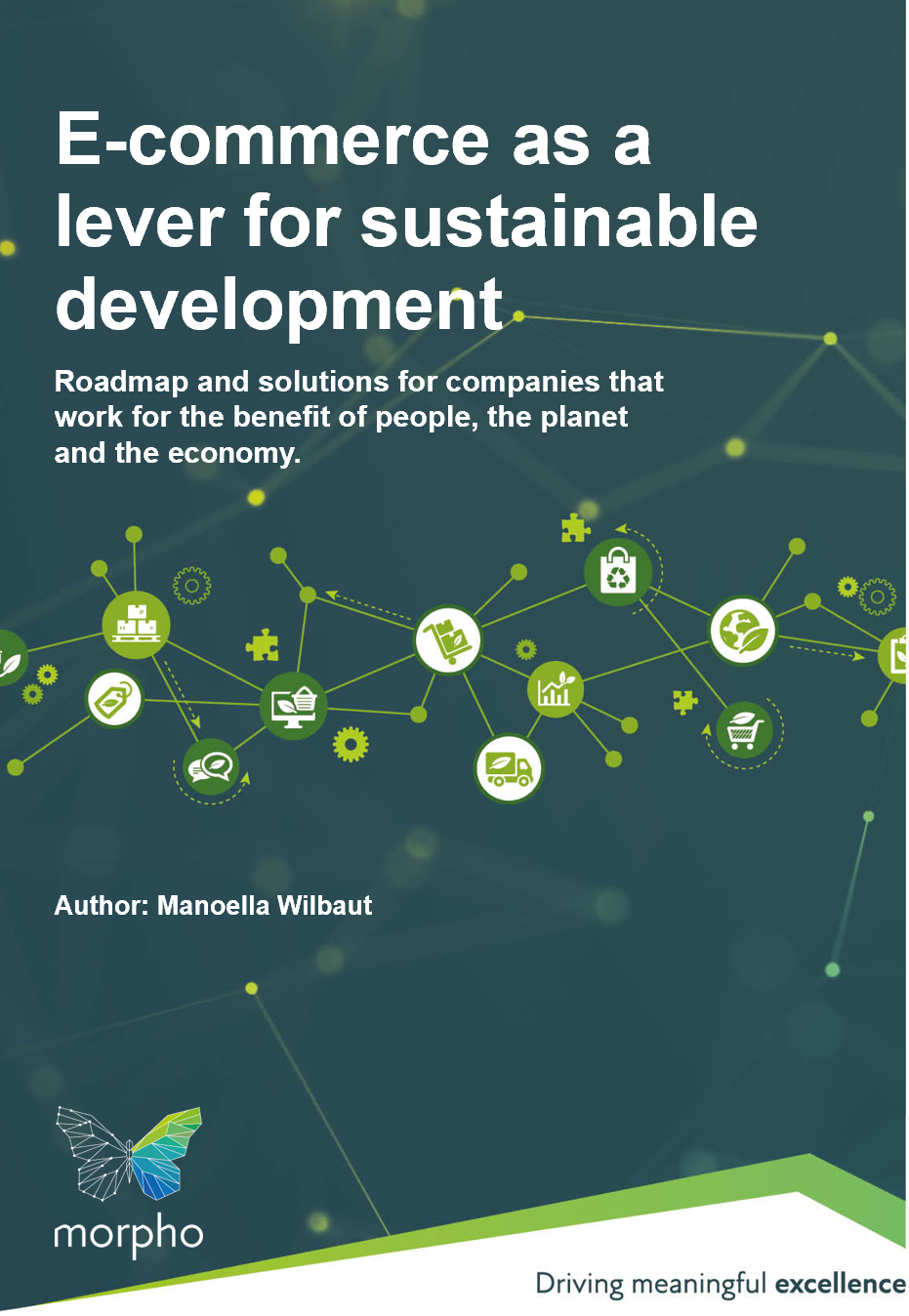E-commerce as a lever for sustainable development

- Is e-commerce here to stay?
- What is sustainable e-commerce?
- Is e-commerce a source of work or, on the contrary, does it cause jobs to be lost?
- Does e-commerce create the need for new job profiles?
- How to use e-commerce as a force for good?
In 2021 and 2022, a group of experts from different horizons (startups, multinational companies , NGOs etc.) came together, for better understand how e-commerce could be a force for good and identify actionable solutions for positive impact. They did this under the impulse of MORPHO, the engagement accelerator with the mission of putting the talents at the service of a net-zero society.

Insights on the white paper
Contact usThe global consumer market for sustainable products is growing, and consumers and companies around the world are increasingly switching to online delivery. E-commerce retailers must ensure product safety and efficient delivery tracking while fulfilling consumer, investor and shareholder demands for ever-improving definitions and standards of sustainability.
This white paper not only presents the facts about e-commerce as a lever for sustainable development but also aims to inspire every reader and encourage companies and consumers take positive action for people, the planet and the economy.
It delivers 7 steps to positive impact, including practical suggestions, actionable solutions and numerous case studies, all the while allowing flexibility to choose the best approaches for your organization. Particular focus is given to logistics, the product, technology, and the company and its operations.
In a global survey by Nielsen, more than 80% of consumers said it was very important for companies to implement programs to improve the environment. The FEVAD barometer indicates that more than 50% of e-commerce companies surveyed intended to increase their CSR investment in 2021 vs. 2020, considering sustainability as an essential lever for their business. Beyond the figures, there is a trend.
Why are companies embracing sustainability? It is to conquer a growing market, appeal to a collective conscience as a source of loyalty, boost marketing and seize opportunities in the circular economy, manage product liability risk, manage resources and protect the talent pool, balance demand and supply, develop supply chain resiliency and maintain investors’ confidence.
How can companies succeed? Answering this question raise several concerns: Where should we start? What are our success goals? How to measure progresses? How to involve our ecosystem? How to align business operations with the UN Sustainable Development Goals? How to help customers to make sustainable choices?
Sustainable e-commerce is clearly portrayed as a collaborative effort between consumers, companies, investors, governments and multilateral organizations. And there is no time to be wasted anymore.

